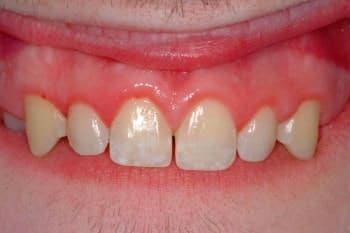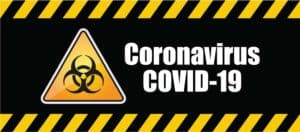You probably don’t stop during your day to think about how you breathe. Our bodies just do it, and we don’t give any thought to it. But how you breathe can have a big effect on your oral health. So, are you a nose breather or a mouth breather?
“Normal breathing is done through the nose,” says Dr. David Brusky. “We’re born as nose breathers, but at some point, you may have switched to mouth breathing. And if that’s the case, it might be causing problems for you, without you realizing that’s the source of your issues.”

Oxygen Absorption differences between nasal and mouth breathing
Breathing delivers oxygen throughout our body and works to remove excess carbon dioxide. Mouth breathers breathe faster, taking in more breaths than nasal breathers do. And this actually leads to a reduction in cell oxygenation.
Oxygen is actually absorbed when we exhale, not when we inhale. Nose breathing allows for the lungs to create back pressure because of the slower exhale, which allows for more time for the oxygen to be transferred from the lungs to the body. When you exhale from your mouth, carbon dioxide blows out too quickly, and less oxygen is absorbed.
Nasal breathing also creates nitric oxide, which helps to improve oxygen absorption by up to 18 percent. This isn’t produced with it, and can lead to restless sleep, lowered stamina and energy levels, and ADHD.
Nasal breathing also warms and filters the air, making it better for your body to use. It allows dirt, bacteria and anything else in the air to enter the body and directly into the lungs.
Nose breathing provides the ideal exchange of oxygen and carbon dioxide and maintains the pH level of the blood. It does just the opposite – expelling carbon dioxide too quickly, decreasing our oxygen absorption and dropping the pH level of our blood.
Signs and Symptoms of Mouth Breathing
Common signs that may indicate you breathe through your mouth, rather than your nose, include:
- Chronic halitosis
- Snoring, or an open mouth while sleeping
- Crowded teeth
- Dry or cracked lips
- A high number of colds, or sinus and ear infections
“Several years ago, the Academy of General Dentistry published a study in their peer-reviewed journal, General Dentistry, that found that the average health care professional didn’t recognize the problems associated with it,” says Dr. Brusky. “If you are seeing your dentist every six months as you should, that means you most likely see your dentist a lot more than your primary care physician. And that means we’re probably the best people to notice symptoms of it and help prevent any problems associated with it from worsening.”
Mouth breathing can be especially harmful for children. Mouth breathing at night often leads to a more restless sleep, which can lead to concentration issues and problems in school. But it can create serious problems with the development of their mouth and face.
Untreated mouth breathing in children can lead to abnormal facial and dental development. It can create long, narrow mouths and faces, smiles that are gummier than normal, gingivitis, crooked teeth and dental caries.
“Dentists are uniquely trained to look for the signs and symptoms of it,” says Dr. Brusky. “If we catch it early, we can look to the cause of it, and then correct it before serious problems occur.”
Mouth breathing dries out the mouth and decreases the production of saliva. Saliva plays an important role in helping maintain good oral health because it works to wash away harmful bacteria, as well as debris from the foods and drinks we consume. It neutralizes acid and helps prevent tooth decay.
When we don’t produce enough saliva, our mouths become a perfect breeding ground for serious issues to take root. Dry mouth is one of the leading causes of gum disease. And gum disease has serious effects on the whole body, as it has been linked to diabetes, heart disease, and stroke.
If you don’t have saliva to wash away the harmful bacteria that lives in your mouth, it can grow and thrive, leading to chronic halitosis.
The dry environment in your mouth and a lack of air filtration can also cause enlarged and inflamed tonsils and adenoids, and an increase in infections of the upper respiratory tract.
Recognizing mouth breathing isn’t always easy. You may think you breathe normally through your nose, but if you take the time to watch yourself in the mirror, you may notice that your mouth is always slightly open. Or, you may notice that your mouth is closed when you sit, but opens when you get up to walk across the room.
Dentists and dental hygienists can help recognize signs of it, and then help patients take the necessary steps to stop it and correct issues associated with it.






My 3 kids are mouth breather.
How much it be damaging for their growth and development ??
How it can be reduced?